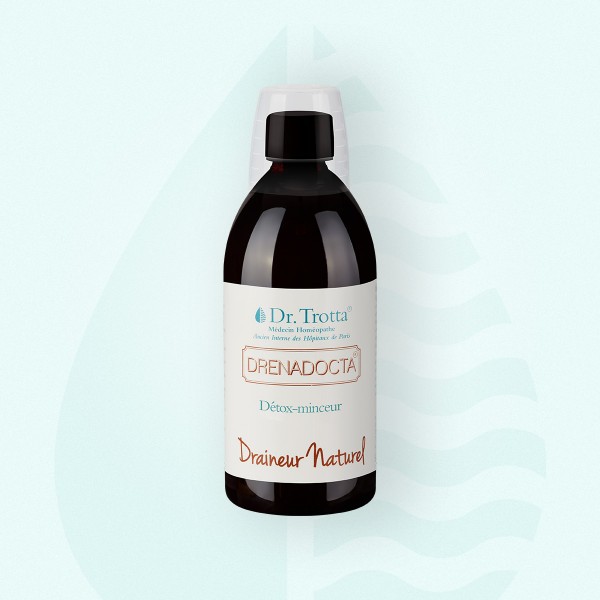Fasting to lose weight? Fasting for healing? Dr Trotta’s fasting diary
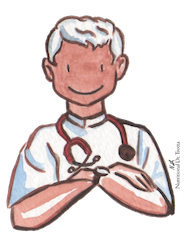
 Doctor Trotta’s fasting diary, complete week-long fast in September 2017
Doctor Trotta’s fasting diary, complete week-long fast in September 2017
I started fasting on Wednesday September 15 after lunch in San Sebastian.
We were due to go on a five-day trip when we learned that our plane ticket had been cancelled due to an air traffic controllers’ strike, a classic occurrence in France.
Dejected and with five days ahead of me, I decided to fast the next day for that minimum duration and try to stick to it.
How did this sudden motivation for fasting come about?
Alerted in 2016 by friends advising me to watch the Arte program on fasting, I finally watched it a few months later when I had the time. I was deeply impressed by the experience accumulated by the Russians and then the Germans in this therapy. I had never learned anything about it in 12 years of medical school.
In the 12 years I’ve been practicing natural medicine, and after 20 years in radiology, where I’ve seen the terrible side effects of chemotherapy and regularly observed that about half the patients who die of cancer die mainly from the side effects of their treatment, I regularly say this: “If I have cancer, I won’t knock on the door of a private center or hospital first, but I’ll start by fasting.”
It’s something instinctive in me that I can’t explain, perhaps through my scattered readings and my common sense, which has never failed me in medicine, and which goes a long way to explaining my winding but oh-so-passionate path.
So I already had a rather positive a priori for fasting, but having a strong appetite and having suffered numerous hypoglycemia as a teenager as a result of nutritional errors, I had an instinctive fear of running out of food and reproducing these unfortunate hypoglycemia.
So I’d never fasted before.
Still, I had tried to dine less during Lent 2015 for 40 days from Monday to Friday. In order to last 40 days, I forgot these wise resolutions on Saturday and Sunday. This allowed me to “relax” with a good restaurant on Saturday and dinner with friends or family on Sunday. This enabled me to hold out and not break down during those 40 days.
It was already a first victory to hold out for so long by only having a bowl of soup in the evening and by eliminating all the foods I liked until then (wine, sausage, sheep’s cheese, bread). In the end, I ended Lent 4 kg lighter in 40 days, relieved of some pain and reassured that I had some willpower where I thought I’d fail.
12 years ago, I changed my nutrition from top to bottom, as I explained in my book “L’alimentation vivante, la première médecine”. But since then, I’d never managed to curb my appetite and knew that one day, I’d have to learn to eat less, to be more sober, to be a bit like the Hounzas, all those traditional peoples whose great longevity is partly explained by their sobriety.
So, this year, after watching and assimilating the Arte fasting program, I was lucky enough to have people on my path who really reinforced my desire to fast:
The first: a friend of my brother-in-law, whom I met at a birthday party and who was the only one with a bottle of water as we celebrated this birthday with champagne, Bordeaux wines and petits fours. This friend had a recurrence of prostate cancer and had decided to fast after some rather trying treatments. I was able to speak to him just before he left and immediately noticed his acetone breath (the sweet and sour smell of apples), indicating that he was indeed fasting, and fasting effectively.
The friendly conversation we had was followed by a series of e-mails in which he gave me a great deal of information, including a link to the Arte programme I’d been unable to watch in time, and scientific studies carried out in the USA demonstrating the effectiveness of fasting in the treatment of cancer.
The second person who came across my path was a cousin I was staying with in Paris, who had just returned from the Buchinger Clinic in Malaga, where he had undergone a 10-day fast to cure high blood pressure.
He had indeed lost 12 kilos and thus naturally corrected his hypertension without taking any chemical medication. This is just common sense: every kilo lost helps to lower blood pressure.
So, armed with this documentation on fasting, my innate good sense and the people I had met who had fasted for between 10 and 20 days and who were doing very well, I decided to start fasting on my own, but gradually.
So after the bombast of the Bayonne festivities, to get rid of the excesses, I decided to take a more radical step than that of Lent 2015 (little dinner): no dinner at all!
It was a great victory when on the first evening I managed to eat nothing at all and drink only my Detox DRENADOCTA. The next day I had a hearty breakfast and a normal lunch. But on the strength of this first success, I didn’t eat dinner on the second evening and so on from Sunday to Friday, i.e. 6 evenings in a row. While I had lost 4 kg in 40 days in 2015 by eating little, this time by not eating at all, but drinking only herbal teas or my DRENADOCTA drainer, I lost 4 kg in six days.
So it’s much more effective not to eat at all than to eat a little, if you want to do a quick detox and lose weight.
On the strength of these successive successes, I decided at the first opportunity to switch from this evening micro-fasting to full fasting.
To help you fast, I’d like to share my experience with you by revealing my fasting diary.
The first evening, Wednesday, is easy because I’d got into the habit of not eating dinner. I drank my DRENADOCTA and went to bed as normal. I wake up the next morning determined not to eat at all.
 Thursday: This first day of fasting. Weight 76 kg (weighed in the morning, naked, just after getting up and emptying the bladder) is not too difficult, I’m surprised.
Thursday: This first day of fasting. Weight 76 kg (weighed in the morning, naked, just after getting up and emptying the bladder) is not too difficult, I’m surprised.
For breakfast, I have my usual mint green tea and nothing else. I then go to see a friend on my motorcycle, covering some forty kilometers in the morning without feeling tired or hypoglycemic. This friend offers me lunch and I tell him: “No, I’m fasting and I want to keep it up. “I respect your decision,” he says, “but isn’t it too difficult?
I tell him I’m surprised, that so far so good. However, I was quite thirsty and my mouth felt dry. So I drank only one glass of water at his place.
When I got home, my wife and son had already had lunch, and my wife, who had been warned that I would start fasting, had been thoughtful enough not to prepare a meal for me or have a plate ready for me. In the meantime, I had bought 2 litres of organic vegetable juice and a quarter of a liter of sauerkraut juice.
My guide to fasting was Dr Hellmut Lützner’s book, “Fasting: lose weight, eliminate, detoxify”. So I took my quarter-liter of organic vegetable juice diluted with half the water and drank this half-liter of diluted juice, slowly in small sips that I pretended to chew and thus passed slowly around my teeth as if I’d eaten something solid.
It’s so much easier and makes you forget the absence of solid food.
Nothing else for lunch.
Then, on the strength of this first experience of not having eaten dinner, breakfast or lunch the night before, even though I’m a big fan of a king’s breakfast and a hearty lunch (so as to eat little dinner), I lay down in the sun to rest, as I was feeling rather tired, and began to read Doctor Lützner’s book in detail, underlining the practical passages that were of particular interest to me in my particular case.
I didn’t taste it, and in the evening I took my 1/2 liter of diluted organic vegetable juice and was satisfied, much to the astonishment of my wife, who normally ate dinner at the same time as me.
I slept just as well as the first night.
You should know that when you don’t eat dinner and when you fast, you sleep very well!
On the other hand, you may initially experience more nightmares or significant dreams, which may correspond to psychic or spiritual detoxification crises.
2nd day of complete fasting on Friday, weight 75 kg
Already lost 1 kg in just one day of fasting. It’s effective for weight loss
Breakfast: mint green tea with no sugar, of course. Sugar must be banned as far as possible, as this is how the physiological mechanism of fasting, known as ketosis, is triggered. In another article, I’ll develop these physiological mechanisms of fasting, which explain the fasting person’s resistance to fatigue and hypoglycemia.
I set off again by motorcycle to visit a house whose furniture is being auctioned off by the auctioneer father of a friend of my daughter Maîalen. I tell him I’m amazed at how easily I’ve managed this first day of fasting so far, but I’m not claiming victory because I know there will probably be difficult moments ahead.
We go home with two cousins whom my wife has invited to lunch, and I sit down at their table and beg them to excuse me, but I’ll just have a small vegetable juice. I’m astonished to be able to attend this lunch, which looks very good, and to be satisfied with my vegetable juice. It’s a sign that the fasting mechanism has kicked in and that I’m not too hungry. 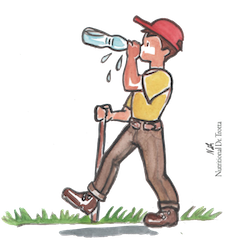 I leave them with their coffee and dark chocolate, and we head back to the auction, where I spend 2.5 hours standing and partly sitting through my first auctions.
I leave them with their coffee and dark chocolate, and we head back to the auction, where I spend 2.5 hours standing and partly sitting through my first auctions.
I make my first bids, and the first one is a bit difficult: it’s quite stressful the first time you bid, and I’d read that you shouldn’t have stressful jolts while fasting, as the fasting metabolism allows endurance but doesn’t allow much acceleration. I very quickly feel a temporary acceleration of my heart rate and feel the need to sit down and rest, a sign that the stress of overdoing it has made me ask for a dose of glucose that my lack of food doesn’t allow me to give so quickly, and so I adapt to this new rhythm.
I’m still obliged to sit down for 20 minutes at the end of the auction because I feel so tired. I take advantage of this to rest, but I’m up and about after 20 minutes, all refreshed and ready to go, without having eaten a thing. All I felt during those 2h30 was a sensation of thirst, and I had to drink two glasses of water.
I’m strong enough to take with me the items I bought, including 2 rather heavy antique trunks, then we head back home and prepare the dinner we’re unexpectedly hosting for our auctioneer friend who’s come from Toulouse with his wife.
Another victory: we were able to receive two couples of friends at home quite normally and I didn’t tell them at all that I was fasting because I didn’t want to disturb them and I also didn’t want to be forced by the very franchouillardesque jokes of friends I knew well and who could tell you “come on a little drink, it’s not so serious, a little piece of cake…”.
I managed to get through this hearty, well-watered dinner by eating only half a plate of gazpacho and drinking only water.
I’d read everywhere that to fast, it’s necessary to isolate yourself or to get together with friends and fast all together, it’s easier, of course that’s all very true. But my profession as a doctor and my obligations don’t allow me to do that at the moment. So I’ve taken advantage of these five unexpected days off to decide to fast on my own, so as not to bother anyone and get on with life as before. I think this solution may require a little more willpower, but it’s a wise and flexible one, as it allows anyone to fast in their own environment. In any case, for the time being, this experience is favourable, and I hope to be able to maintain it for six days.
I don’t have to go to bed earlier than others, and I live normally, accompanying my wife for dinner, which of course I don’t eat, and I don’t feel any special fatigue.
I’ve noticed that I sleep very well, and better than usual. I need less sleep and wake up more easily in the morning.
My awakenings are less painful and I don’t have stiff or painful joints and tendons as usual. On the other hand, you need to get up more slowly, as you may feel a little dizzy if you get up too quickly: this is due to the orthostatic hypotension generated by the dehydration induced by fasting.
3rd day of fasting, Saturday. Weight 74 kg
The bill for yesterday’s missed dinner is paid in the morning, and I find myself standing at the breakfast table with a great hunger, thinking “how many baguettes am I going to take, how much toast am I going to make myself?” I resist this hunger and make myself a green tea and drink it quietly while chatting with my eldest daughter. And finally, perhaps I drink my tea a little too quickly and experience some mild and temporary nausea, which I also felt at my first breakfast, when I only had tea and no solid food.
This is one of the side-effects of fasting at first, but it passes afterwards and occurs if you drink a little too quickly. So you need to drink slowly, even if you’re hungry.
Another detail I didn’t mention: since you’re no longer eating solids, you have far fewer bowel movements. Me, who has a balanced diet and a regular morning bowel movement this time, only had a bowel movement on the second day, but without any difficulty.
I didn’t do the enemas recommended by Dr. Lützner in his book, nor did I take the sodium sulfate to evacuate the intestine, as I have an excellent transit, and having no desire to give myself an enema, I didn’t deem it necessary. What’s more, I’d like to try and recommend this to my patients without having to inflict myself with enemas or take this bitter potion, so I’m trying it out and we’ll see. 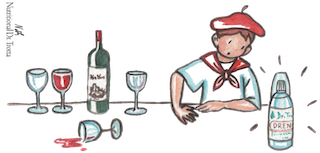 On this 3rd day, Saturday, I go to the Bayonne market, a healthy habit I’ve developed over the last 10 years, where I rub shoulders with local producers and friends and spend some quality time together. I only drink a small cup of coffee offered by my friend Iñaki and I don’t drink my small glass of white wine or eat oysters, contenting myself with buying some good wine for friends.
On this 3rd day, Saturday, I go to the Bayonne market, a healthy habit I’ve developed over the last 10 years, where I rub shoulders with local producers and friends and spend some quality time together. I only drink a small cup of coffee offered by my friend Iñaki and I don’t drink my small glass of white wine or eat oysters, contenting myself with buying some good wine for friends.
I then only eat my half-litre of diluted vegetable juice, which is easy, and then we go to a wedding where we’re invited.
There’s my second feat! I manage to attend the excellent cocktail party with champagne verrines, mussels and only take the glass of diluted grapefruit juice.
My wife tells me to “have a little verrine anyway, it won’t do you any harm”. I took a small avocado verrine, as light as possible, and started to take a small spoonful when the friend with whom I was chatting, Miguel, very appropriately said “no Pascal, you mustn’t take it, it’ll make you terribly hungry” and he stole my verrine … and ate it right under my nose! Well, not only did he please himself, but he did me a great favor, because I think it could have triggered the end of my fast.
Back at home, after the cocktail party, I only had half a liter of vegetable juice, then put away the trunks I’d bought the day before, after cleaning them and telling my wife, laughing, “it’s incredible, this fast makes me want to tinker!” even though I never feel like tinkering because I’ve long since exceeded my threshold of incompetence in this area.
I sat down quietly in the living room, not at all tired, and started reading, then I decided to write this fasting diary to share it with you and help you fast better without upsetting your diary and activities too much. It’s 1.20 a.m. and I don’t feel the slightest bit tired – it’s incredible how much energy fasting releases, if you stick with it. Because it’s true that 30% of our energy is consumed by digestion.
So you gain 30% more energy and an incredible amount of time, because you spend much less time shopping and preparing meals. It’s this new feeling of freedom with regard to nutrition that’s gradually being released in me.
Weight loss and body fat graph
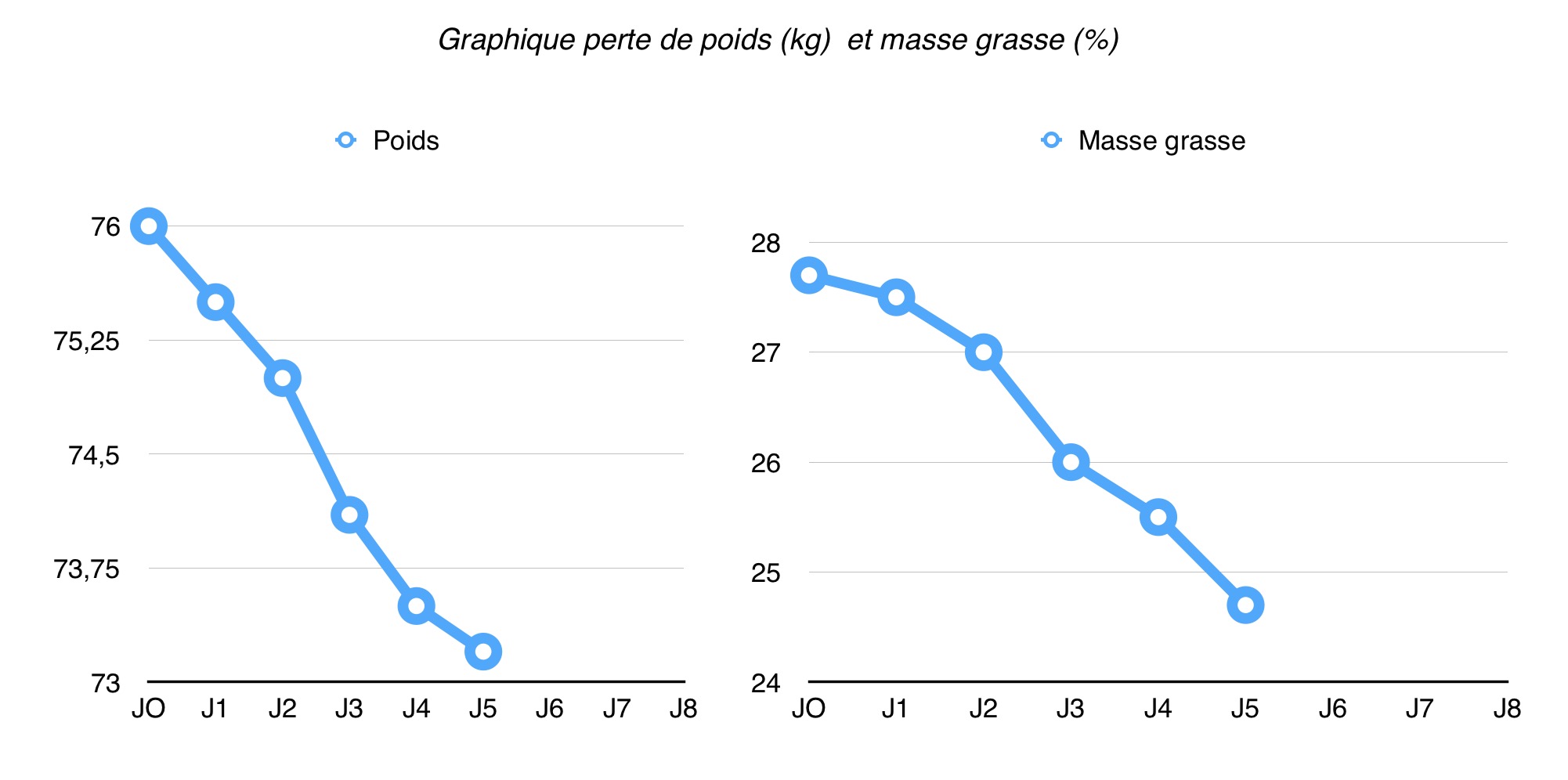
Loss of a notch around the waist in 4 days.
Cheek hollowing
Sensation of pasty mouth but not annoying
You can “chew” your vegetable juice to make it last.
I can be satisfied with very, very little and live almost normally. Of course, I have an empty feeling in my stomach, but it’s nothing compared to the physical, psychic and spiritual energy I’ve liberated.
I felt extremely strong emotions at the wedding Mass and was totally available for the word and prayer.
My thoughts are clearer,
4th day of fasting: Sunday, weight 73.5 kg
I sleep very well. In the morning I get up and without changing my habits (I’m not going to inflict my decision to fast on others and make them sad) I go to the bakery to buy croissants and good baguettes for my wife and children. The good smell of the bakery awakens certain cravings a little and when I get home, I’m satisfied with my only tea but I’m still a little nauseous and don’t stay too long in the kitchen because this Sunday morning breakfast, which is the extra in my healthy eating habits, really makes me want to eat (I’ve always been very greedy and will remain so).
Around 11 a.m. I go to mass with my eldest daughter: it’s amazing how fasting facilitates attention, spiritual elevation and prayer. It’s no wonder: Jesus himself isolated himself in the desert to fast completely before beginning his public life. Many Christian mystics, and others like Gandhi, have spoken well of the fortitude that comes from fasting.
Sunday lunch is a family affair with chicken in sauce, rice and good red wine, but I watch my family, and the friend we’d invited, savor it all while slowly masticating my vegetable juice. It’s true that I’m tempted, but strangely enough I’d rather continue my fast than sacrifice this experience too soon. The benefits of fasting are so much greater than that little hunger pang, which diminishes with each passing day.
In the afternoons I’m very active, and instead of taking a siesta as usual, I’m busy tidying up and tinkering around the house, which is quite unusual for me. My wife is astonished and finds this fast very, very beneficial.
I’m in a rather cheerful mood. I’m even doing jobs that require quite a lot of physical energy, like moving a 40kg bag of sand, or moving fairly heavy trunks, all without noticing any fatigue or the need to rest.
I still don’t taste, but the smell of the toast my wife makes at snack time is what most awakens in me the right sensations of appetite and craving. In the end, it’s more the smell than the sight of the food that makes me want to break down.
I still don’t break down and take a quarter of organic vegetable juice diluted with a quarter of a lemon and a little water at dinner, very slowly. I drink about 1/2-1litre of water a day between meals. I sleep less soundly than in previous nights and wake up earlier.
5th day of fasting on Monday. Weight 73.2 kg  Waking up was rather easy and it was incredible not to feel any musculo ligament pain when I woke up; this is a real liberation.
Waking up was rather easy and it was incredible not to feel any musculo ligament pain when I woke up; this is a real liberation.
Breakfast is always a bit sad with tea and a little honey and coffee. You have to drink quite slowly, otherwise you feel a bit nauseous, so I drink less than my usual amount. Then I spend a morning working without feeling tired and then go shopping in town and don’t get home until around 1.30pm feeling a bit thirsty. I drink water, then my vegetable juice diluted with lemon and nothing else. No coffee. No nap. Good energy right away. Active afternoon repairing the house bikes in an association.
1 hour cycling in great shape in the afternoon.
Surprising thing: I can now squat without my knees hurting. So many benefits in just four days of fasting.
A studious evening at work, with no fatigue whatsoever, interspersed with my quarter-liter of vegetable juice diluted with water and lemon, then back to work until 1 a.m.
Finally, it’s on this fifth day of fasting that I feel at my best, with a sense of balance and a determination to make this fast last longer than initially planned. Because well-being is extraordinarily beneficial and I hope everyone will try it.
I had planned to stop fasting tomorrow, but I think I’ll keep it going until my consultations resume on Wednesday and Thursday, to see if I can work while fasting.
I’m even managing to sort out complex administrative tasks with patience and tenacity.
I’m less angry than usual, more patient, and take life with a certain detachment and good-naturedness. Fasting is a truly liberating experience.
It’s one o’clock in the morning and I’m not tired.
I’m going to bed anyway to get some rest and will resume this diary tomorrow.
The friends and family I talk to about it say, “but how do you do it and I’ll never manage it.” But it’s not that difficult! Others tell me “I’ll need to isolate myself because otherwise I’ll crack. I don’t know how you managed to invite friends to dinner and then go to a wedding and then go to a bakery to buy croissants..” If I did it, me being such a gourmand and having a rather gargantuan appetite, I think anyone can do it; but anyway this is a personal experience I want to share with you…to help you fast in your own way.
Day 6: Tuesday, weight 72.5 kg
The same day as the previous one, with as much energy as ever, lots of DIY and other activities, no tiredness, no hunger pangs and no nibbling.
The body has got used to it and doesn’t ask for its fair share of food.
I’d like to say that the body is made to go through periods of famine and fast for a maximum of 40 days.
Since man first walked the Earth, he has experienced more periods of famine than of plenty. The human body’s metabolism is therefore designed to survive in periods when there is no food. The body then uses fat reserves to feed itself.
The modern period is nothing in the history of mankind: it’s only since around the 1st century that Western societies have all been eating every day at the end. But this is not the norm for humanity. We’re wired to have periods when we put our bodies and intestines to rest. Fasting is a modern way of respecting this alternation of scarcity and abundance. What’s more, modern diseases are all diseases of overload: cardiovascular disease, obesity, rheumatism, counselling. It’s because we eat too much and too poorly that we’re making ourselves ill. The weapon of mass destruction is not the atomic bomb, it’s the fork!
Fasting allows the body to draw on the most toxic fat reserves to nourish and detoxify itself.
Fasting is truly the Royal Weapon in the hands of the doctor and therapist.
If the social security system were to seize this weapon, there would be no deficit, and in less than six months. But as this institution is dependent on politicians who are dependent on multinationals (who have no interest whatsoever in the development of fasting, as it would prevent them from selling a huge number of drugs), it won’t be long before we see fasting being developed by hospitals and the social security system, unless there’s a radical change in policy, which I obviously hope there will be.
7th day of fasting: Wednesday, back to work, weight 72 kg
I resume consultations this day and leave for work after my green tea-based breakfast without solid food.
Consultations with a homeopathic and nutritionist doctor are consultations that require perfect attention and concentration on the part of the doctor, in particular for this particular and personalized listening of the homeopathic practice and the empathy that the doctor gives in his consultation. I realize that this is quite incompatible with fasting, at least in my own experience. I think that the doctor’s concentration on listening and diagnosing patients with complex, chronic illnesses requires the brain to take in more glucose than it would in a resting period, and that fasting at the same time is not very easy.
So I spent a rather difficult day still without eating anything, and decided to resume eating quite gradually, as I was reconsulting the next day.
No dinner. The next morning, day eight, I had a more substantial breakfast, with an organic mosquito and a piece of fruit, green tea and a boiled egg. For lunch, I eat vegetables, sardines and lentils. And in the evening I keep up my hydration.
All in all, these 7 days of fasting are extremely beneficial:
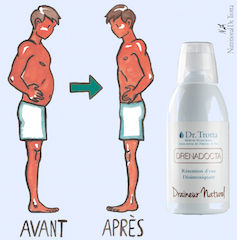 In one week, I lost 4 kg, my joint and tendon pains disappeared when I got up, I could squat much more easily, and I had more intellectual acuity and physical energy. Clearly, my body had undergone a real detox.
In one week, I lost 4 kg, my joint and tendon pains disappeared when I got up, I could squat much more easily, and I had more intellectual acuity and physical energy. Clearly, my body had undergone a real detox.
I didn’t need to nap after lunch, went to bed 1.5 hours later, slept very well and got up much more easily.
This is an experiment in fasting that I carried out in my family environment without modifying the activities of those around me, and without isolating myself from the activities of my family and friends. For several reasons, I didn’t choose to go to a specialized center because I couldn’t afford it and wanted to try this experiment to see if it was possible: it’s perfectly possible to fast alone, but it may require a little more willpower and organization. I didn’t take the recommended enema and my bowel movements were normal the day after fasting.
The negative points are far less than the positive ones: some morning sickness, difficulty in working normally when you have a fast pace. I haven’t had any migraines or toxic elimination attacks. I lost a total of 4 kg and 4 cm off my waist.
For those of you who would like to try this, I recommend the drainer DRENADOCTA which will help stimulate the liver and kidneys to eliminate the toxins that fasting is bound to release.
Of course, you can also take advantage of all the fasting groups that have sprung up in France over the last few years, enabling groups of people to get together and fast for 5-15 days in a relaxed, often sporty atmosphere, in places chosen for their natural environment, conducive to relaxation and rest.
For the more affluent, there are the Bûchinger clinics in Switzerland and Spain, but they’re really overpriced…for nothing to eat. The price is justified by the luxurious environment and the medical care provided.
For those tempted by an experience similar to mine, you can write to me at info@dr-trotta.com, and I’ll give you some sound advice.
Finally, I recommend fasting for the following reasons:
– Once or twice a year, in autumn and spring, to detox and cleanse the “inside” of your body and start afresh, which is the best way to prevent disease.
– If you’re overweight and want to lose weight quickly and regain your health.
– If you have excess illnesses: hypertension, diabetes, rheumatism and cardiovascular disease. Fasting is the best therapy for overcoming these illnesses without chemical medication. It’s only after one to three weeks of fasting that we’ll know if you need to take medication at all, as these periods of fasting often restore blood pressure and blood sugar norms without medication.
– Even if you have cancer, I recommend fasting. Personally, if I were diagnosed with cancer, I’d start fasting for at least three weeks to “starve my cancer cells”, because cancer cells don’t know how to use the metabolic pathway of ketogenesis and can only use glucose as fuel. Fasting means depriving yourself of more causes, and therefore starving and killing the cancer cell naturally. Moreover, fasting the day before and the day of chemotherapy considerably reduces nausea and vomiting, and increases the effectiveness of the chemotherapy. But that’s another subject, and one we’ll come back to later, as it’s a sensitive one that requires special, sympathetic psychological and medical support.
Dr Pascal Trotta,
Former intern at the Hôpitaux de Paris, Specialist Physician, Radiologist, Homeopath, Founder of the San Sebastian Institute of Natural Medicine
Paseo de los Fueros 3, 20005 San Sebastián, Basque Country
Request an appointment for a consultation with Dr Trotta
– on site
– online
Tel: 05 54 54 44 43
Nos produits naturels
Need more information and to meet Dr. Pascal Trotta?
Make an appointmentAlso read
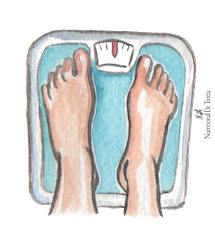
Dr Trotta's evening slimming-detox micro-fasting
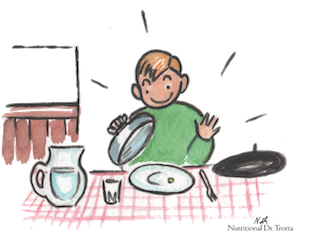
Fasting for healing
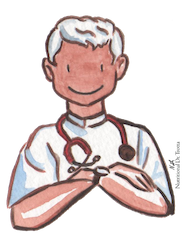 Doctor Trotta’s fasting diary, complete week-long fast in September 2017
Doctor Trotta’s fasting diary, complete week-long fast in September 2017